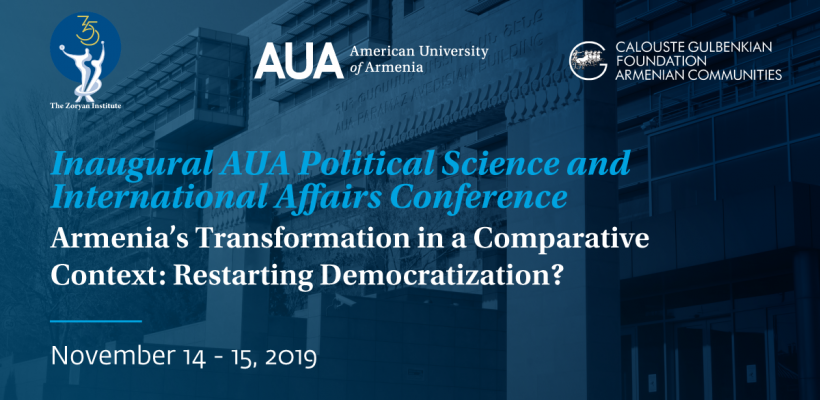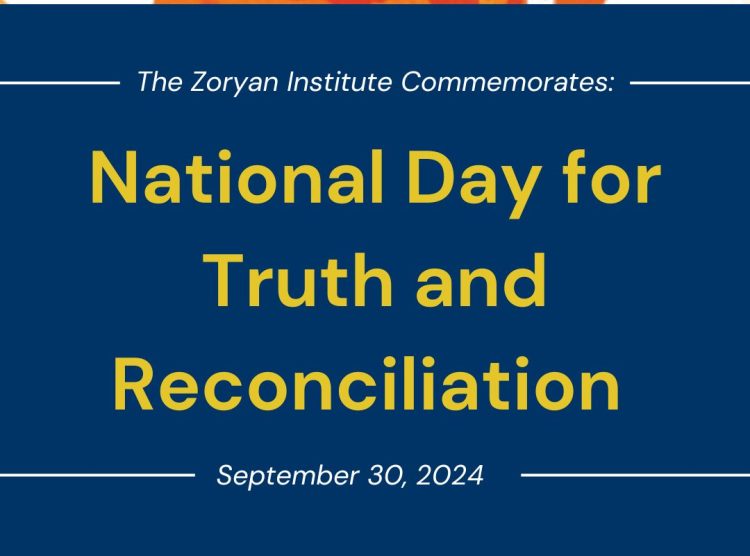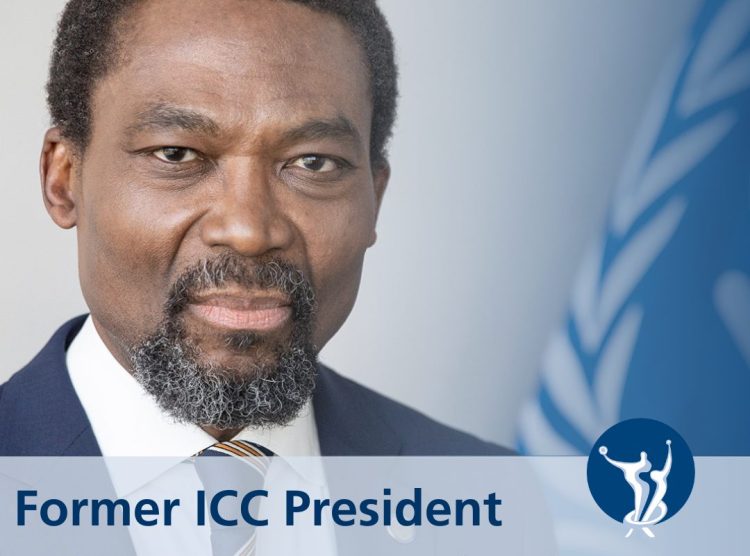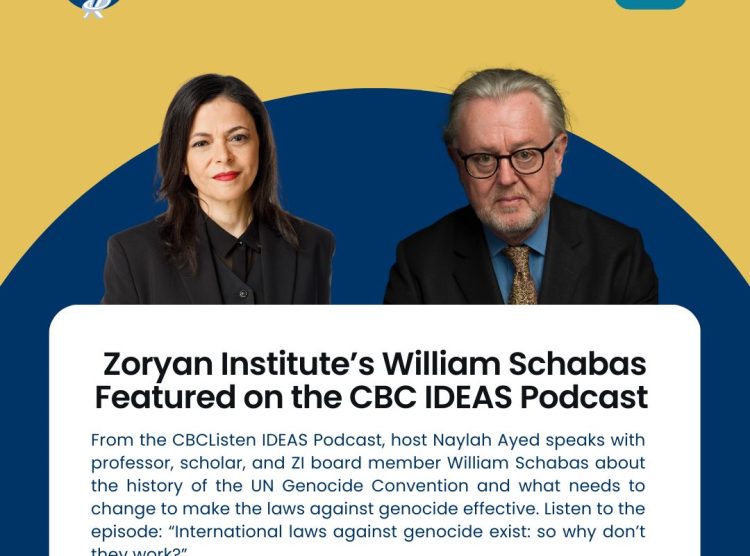The Zoryan Institute and the American University of Armenia (AUA), with the support of the Calouste Gulbenkian Foundation, are pleased to announce the speakers of the conference, Armenia’s Transformation in a Comparative Context: Restarting Democratization?
This two-day conference, to be held on November 14-15, 2019, will bring together 22 international scholars and specialists to participate in five different panel discussions, analyzing the various aspects of Armenia’s 2018 “Velvet Revolution” and its aftermath. This analysis of Armenia’s current political landscape will use a comparative approach, examining various case studies of peaceful revolutions throughout history.
The first panel, Post-Soviet Heritage, Stagnant Democratization and Rising Aspirations, will focus on the socio-economic and political conditions of countries leading up to uprisings such as the Velvet Revolution. In this panel, we will hear from: Stas Gorelik, PhD student in the Department of Political Science at George Washington University; Susanne Brunnbauer, research assistant at the Centre for Global Cooperation Research and the Käte Hamburger Kolleg in Duisburg; and Dr. Vicken Cheterian, Professor of International Communications and Journalism, Political Systems and Soviet/Post-Soviet Area Studies at Webster University in Geneva.
The second panel, Contentious Politics, Mobilization, and Media Use: From Digital Engagement to Street Presence, focuses on the social movements and street politics at the core of mass uprisings. It will feature: Anna Hakobyan, MA student at Humboldt University of Berlin; Narek Sukiasyan, MA student of Regional Politics at Yerevan State University; and Vedran Obućina, Croatian political scientist and theologian, PhD researcher at the University of Regensburg. The panelists will weigh in on topics ranging from the impact on religious institutions during uprisings to employing securitization theory.
The third panel, Revolution, Transfer, or Interstice: How Systemic are the Changes?, presented in two sections, will focus on the sustainability of the change in the aftermath of mass uprisings. The panelists of the first section are: Dr. Arpie G. Balian, an educator and researcher specializing in public policy, administration, and development; Valentina Gevorgyan, doctoral researcher in Political Science at the University of Fribourg; Dr. Basilio G. Monteiro, Associate Professor in the Department of Mass Communications and Director of the International Communications Graduate Program at St. John’s University, NY; and Dr. Khatchik DerGhougassian, Professor at Universidad Nacional de Lanús, Argentina. The panelists of the second section are: Tigran Mughnetsyan, a recent graduate of the Public Administration Academy of the Republic of Armenia; Dr. Gregory Areshian, Professor of History and Archaeology at AUA; Dr. Donald E. Fuller, AUA Professor in the Political Science and International Affairs (PSIA) program; and Dr. John Antranig Kasbarian, the Development Director for the Tufenkian Foundation.
The fourth panel, International Relations After a Political Upheaval: Continuity or Rupture?, will investigate the impact of the Velvet Revolution in the sphere of international and foreign relations. It will probe the implications for Armenia and the larger region and feature the following experts: Dr. Baldur Thorhallson, Professor of Political Science and the Jean Monnet Chair in European Studies at the University of Iceland; Alen Shadunts, DPhil candidate at the University of Oxford; Dr. Loosineh Markarian, Civil-Military Relations Expert at the Center for Innovation in Open Governance; and Isa Aminu, lecturer in the Department of Political Science at Federal University Lokoja, Nigeria.
The fifth and final panel, Human Rights, Justice, and Rule of Law: Stability vs. Change, focuses on human rights and the rule of law in times of abrupt change and transformations of social and political structures. The panelists are: Dr. David Mednicoff, Associate Professor of Middle Eastern Studies and Public Policy, and Chair of the Department of Judaic and Near Eastern Studies at the University of Massachusetts-Amherst; Dr. Simon Clarke, Associate Professor at AUA’s PSIA program; Matthew Torigian, Ontario’s Deputy Minister of Community Safety and a distinguished fellow at the Munk School of Global Affairs and Public Policy at the University of Toronto; and Dr. Ruben Shougaryan, Professor at Tufts University’s Fletcher School of Law and Diplomacy.
More information on individual panels and speakers can be found on the official webpage of the conference.
Registration for the conference is now open. Seating for this event is limited to a first-come, first-served basis. Please register to save your seat.
The Zoryan Institute and its subsidiary, the International Institute for Genocide and Human Rights Studies, is the first non-profit, international centre devoted to the research and documentation of contemporary issues with a focus on Genocide, Diaspora and Homeland.




